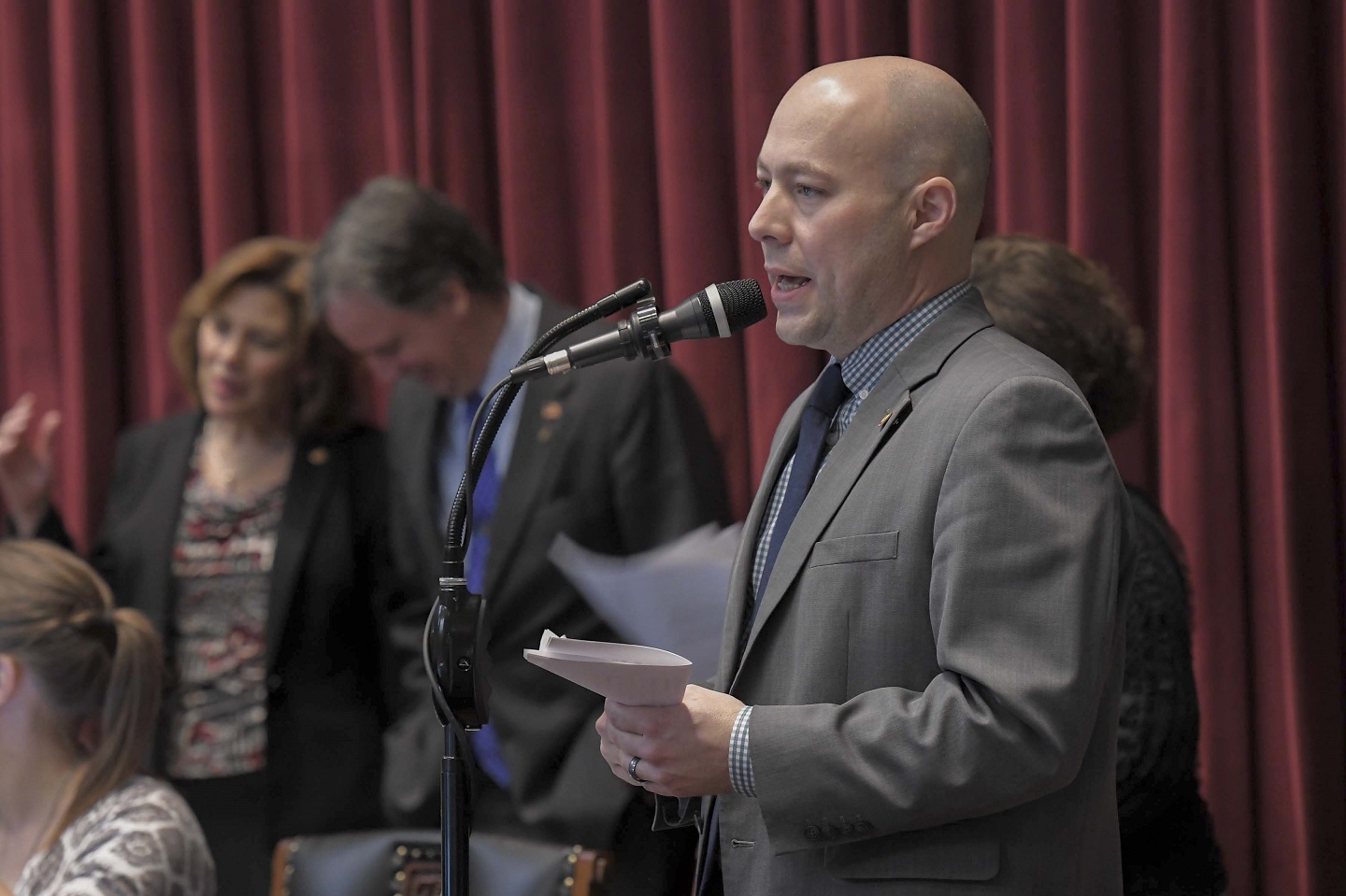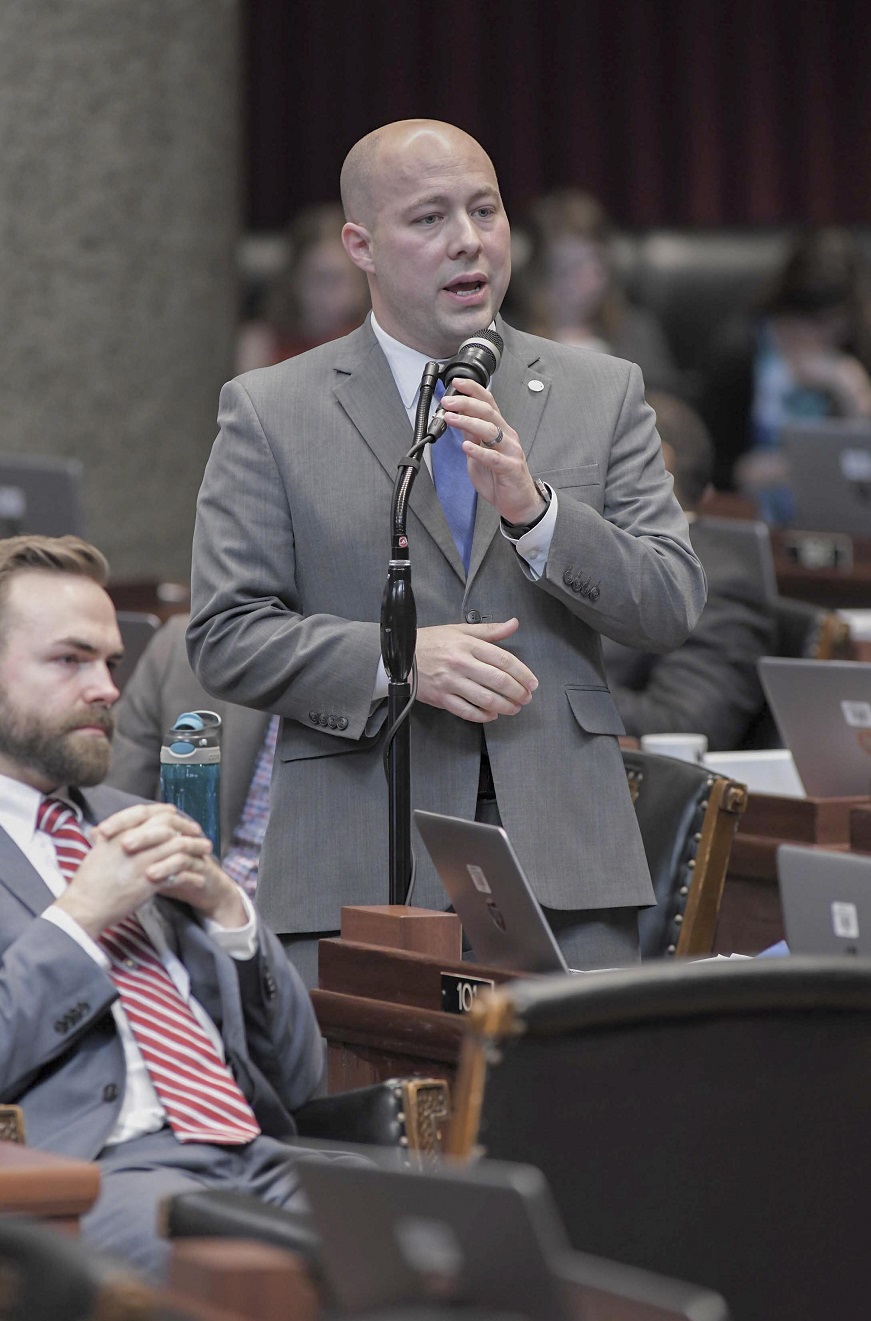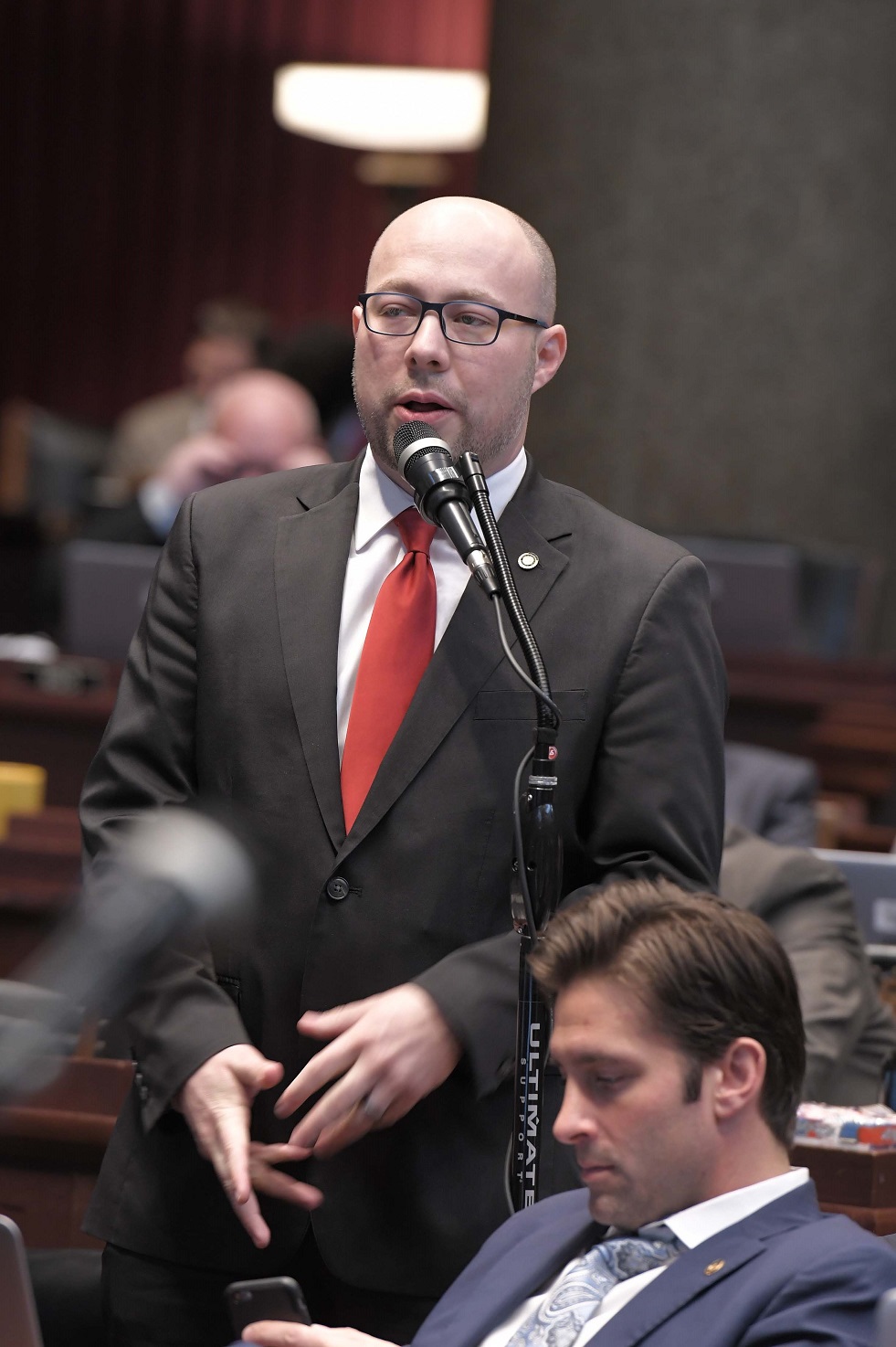A House bill that became law Tuesday aims to keep Missourians from being jailed for failing to pay the costs of being jailed.

House Bill 192, targeting so-called “debtors prisons” in Missouri, was signed into law by Governor Mike Parson (R). It will do away with “show cause” hearings, in which defendants must provide a reason for failing to pay “board bills” for time they spent in a county jail. Failure to show cause often resulted in additional jail time and additional board bills that could add up to thousands of dollars.
HB 192 will let counties use civil means to collect jail debts, but they can no longer threaten additional jail time for failure to pay.
“[Courts] can still charge people for the time they spend in jail. [They] can’t have show cause hearings anymore. [Courts] can’t put people back in jail for not paying their jail bill,” said bill sponsor Representative Bruce DeGroot (R-Chesterfield). “[Counties] can still sue that person civilly and reduce that debt to a judgment and garnish wages just like you would in a civil court with a credit card debt or a medical bill.”
DeGroot worked closely with Kansas City representative Mark Ellebracht (D) on the legislation.
“I think it means a lot in terms of just fairness and justice and how the system works,” said Ellebracht, “because once a person gets put in jail, once they get sent down for 30 days, their time is their punishment. That’s the deal that we’ve made with people: we’re going to sentence you to 30 days … now with regard to what you owe the sheriff for their bill … you can’t pay that bill off if you’re in jail on a warrant for not paying that bill, so it just makes sense that the sheriff should have to collect that money through the normal debt collection processes like any other creditor would have to.”
DeGroot and Ellebracht both credit St. Louis Post-Dispatch columnist Tony Messenger for spurring the legislation with a series of articles he wrote about the current system. Those articles also earned Messenger a Pulitzer Prize.
In one case Messenger wrote about, a woman incurred more than $10,000 in “board bills” after stealing an $8 tube of mascara.
DeGroot said situations like that go against the principle of people who have paid their debt to society returning to being productive members of society, providing for themselves and their families, and getting back on the tax rolls.

In presenting HB 192 DeGroot was the most visibly animated and joyful he has been in his three years in the legislature. He admits he was very enthused about the legislation.
Following their success with HB 192, Ellebracht said he and DeGroot are talking regularly about other topics they hope to team up on.
Ellebracht says any differences he and DeGroot have in party or other issues don’t really have any bearing on criminal justice reform, “When we’re looking at something and we’re saying to ourselves, ‘[Missouri law is] really handicapping a lot of folks in the economy by preventing them from getting good jobs, and [Missouri law is] really handicapping a lot of businesses by putting them in a position where they can’t afford to be hiring folks who have had that little minor scrape in their background, for fear of some kind of public retribution, or maybe a lawsuit here or there or something like that, so we need to figure out a way that we can adjust the way we do things so that it’s more fair for everybody involved.”
HB 192 also included language that would allow judges to waive mandatory minimum sentencing requirements for non-violent offenders who meet certain criteria.
Both provisions become effective August 28.
Earlier stories:
Legislature proposes reforms to end ‘debtor’s prisons,’ mandatory minimum sentences
House votes to prevent of jailing of Missourians for failing to pay jail bills







